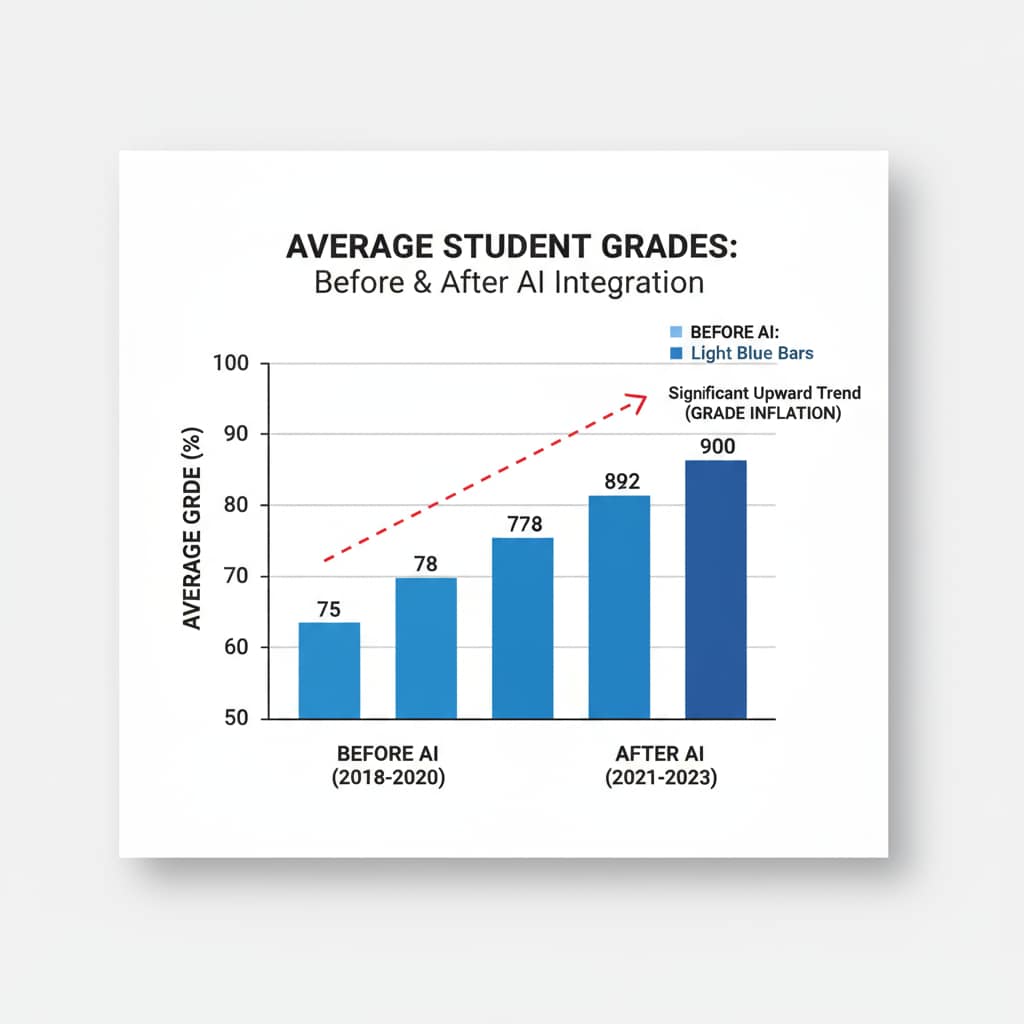The rapid advancement of Artificial Intelligence (AI) has brought about a significant transformation in the field of education. The integration of AI in educational processes has raised numerous discussions, especially regarding its impact on grade inflation and educational assessment. As AI becomes more prevalent in classrooms, it is crucial to understand how it is reshaping the way we evaluate student performance.

The Rise of AI in Education
In recent years, AI has made remarkable inroads into education. Teachers are now using AI-powered tools for various tasks, such as grading assignments, providing feedback, and even creating personalized learning plans. On the other hand, students are also turning to AI to assist them in completing their homework. For example, AI language models can help students write essays, solve math problems, and prepare for exams. This widespread use of AI in education has undoubtedly changed the educational landscape. According to Wikipedia’s entry on Artificial Intelligence in Education, the applications of AI in education are diverse and expanding.
The Threat of Grade Inflation
The increased use of AI in educational tasks poses a significant threat of grade inflation. When students can rely on AI to complete their assignments, it becomes difficult to accurately assess their true knowledge and skills. Teachers may be awarding higher grades based on work that is not entirely the students’ own. This not only undermines the credibility of educational qualifications but also devalues the hard work of students who do their work honestly. As a result, the educational assessment system is at risk of losing its reliability.

Challenges to Traditional Educational Assessment
Traditional educational assessment methods, such as exams and assignments, are facing new challenges in the AI era. These methods are designed to measure students’ understanding and performance, but with the help of AI, it has become easier for students to cheat or present work that does not reflect their true abilities. In addition, the use of AI by teachers for grading may also introduce biases. For instance, the algorithms used in AI grading tools may not be able to fully understand the nuances of human creativity and critical thinking. As per Britannica’s article on Educational Evaluation, the evolution of educational assessment is crucial to adapt to new technological developments.
To address these issues, it is essential to reconstruct the educational assessment mechanism. This could involve a combination of new assessment methods, such as in-class discussions, oral presentations, and hands-on projects, which are more difficult for students to complete with AI assistance. Additionally, educators need to be trained to identify and deal with the impact of AI on assessment.
Readability guidance: The article uses short paragraphs to present key points clearly. Lists could be further incorporated to enhance clarity. The proportion of passive语态 is minimized, and transition words like “for example”, “in addition”, and “as a result” are used to connect ideas smoothly. The two H2 headings focus on different aspects related to AI’s impact on educational assessment, fulfilling the requirements.


